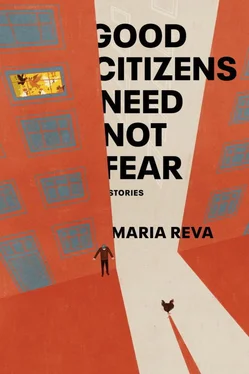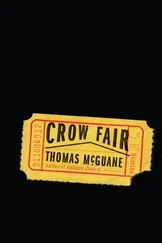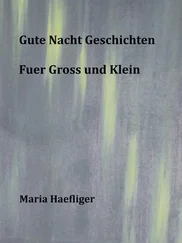Maria Reva - Good Citizens Need Not Fear - Stories
Здесь есть возможность читать онлайн «Maria Reva - Good Citizens Need Not Fear - Stories» весь текст электронной книги совершенно бесплатно (целиком полную версию без сокращений). В некоторых случаях можно слушать аудио, скачать через торрент в формате fb2 и присутствует краткое содержание. Город: New York, Год выпуска: 2020, ISBN: 2020, Издательство: Doubleday, Жанр: Современная проза, humor_satire, на английском языке. Описание произведения, (предисловие) а так же отзывы посетителей доступны на портале библиотеки ЛибКат.
- Название:Good Citizens Need Not Fear: Stories
- Автор:
- Издательство:Doubleday
- Жанр:
- Год:2020
- Город:New York
- ISBN:978-0-38554-529-7
- Рейтинг книги:3 / 5. Голосов: 1
-
Избранное:Добавить в избранное
- Отзывы:
-
Ваша оценка:
- 60
- 1
- 2
- 3
- 4
- 5
Good Citizens Need Not Fear: Stories: краткое содержание, описание и аннотация
Предлагаем к чтению аннотацию, описание, краткое содержание или предисловие (зависит от того, что написал сам автор книги «Good Citizens Need Not Fear: Stories»). Если вы не нашли необходимую информацию о книге — напишите в комментариях, мы постараемся отыскать её.
Good Citizens Need Not Fear: Stories — читать онлайн бесплатно полную книгу (весь текст) целиком
Ниже представлен текст книги, разбитый по страницам. Система сохранения места последней прочитанной страницы, позволяет с удобством читать онлайн бесплатно книгу «Good Citizens Need Not Fear: Stories», без необходимости каждый раз заново искать на чём Вы остановились. Поставьте закладку, и сможете в любой момент перейти на страницу, на которой закончили чтение.
Интервал:
Закладка:
On Thursday morning, upon arriving at the Cultural Club, Konstantyn discovered a man sitting in Konstantyn’s swivel armchair, behind Konstantyn’s oak desk. The surface of the desk had been cleared, the usual piles of documents replaced by a potted African violet.
The intruder’s magnified eyes swam behind thick glasses. “Do you have an appointment?”
Konstantyn stood at his office door, kept his hand on the cold metal knob. “Do you?”
“Ah, Konstantyn Illych.” The man, irritatingly young, hair slick with pomade, gave a tight smile, apparently embarrassed for them both. “Haven’t you received the directive?” When Konstantyn shook his head, the man turned to the telefax machine, flipped through the pages hanging from its mouth, plucked one out, and handed it to Konstantyn. The curt letter informed the Director of the Kirovka Cultural Club of his termination.
Konstantyn focused his anger on the potted violet on the desk. He wanted to shred its chubby leaves. Instead, he reached forward and grabbed the phone, clamped it between his ear and shoulder—a gesture of importance, of expert phone handling. “If you’ll excuse me.” He didn’t know what he would say to the Minister, exactly. The damage had been done.
Konstantyn nodded at the door, but the stranger didn’t move.
“I’m sorry, Konstantyn Illych.”
For a moment the men stared at each other. Both wore navy industrial-made suits. Konstantyn planted himself in the metal wire chair across from the desk. He had never sat in it before. The chair was angular, possessed bones of its own that poked up to meet the occupants, hurry them out of the office. He must have the chair replaced, he thought, before realizing this would no longer be in his power. He reread the letter and this time its contents sank in. His words came slowly: “I’ve worked here for twenty years. I’m a respected poet. Ten years ago I was named People’s Artist.”
His replacement gave him a pitying smile. The man’s hand swept around the office, calling attention to the peeling wallpaper, the cracked ceiling—everything that no longer mattered.
The phone nestled in Konstantyn’s lap beeped impatiently. Dial or hang up. He hung up.
The new Director busied himself. He pinched a dead leaf off the violet, pocketed it. He slid a document from a drawer and held it in front of his face. Konstantyn pretended to read the words and numbers on the other side of the sheet, hoping the action would render him useful again. The man’s wedding ring drew his gaze. Konstantyn hadn’t stopped wearing his own; it gave a man, especially one along in his years, legitimacy. If a man could keep a companion, surely there was nothing too wrong with him.
“Whether or not I work here, Orynko will compete for Miss USSR,” Konstantyn vowed. What could he lose?
“I’m afraid,” the man’s soft voice came from behind the sheet, “the girl is gone.”
“Gone?”
“Recruited by the Thermometric Academy. All thanks to your pageant. The girl had mentioned her desire to pursue thermophysical study, no?”
Orynko had indeed mentioned this during her onstage interview, halfheartedly, to please her parents, who cheered her on from the front row. “I’ve never heard of any such academy,” said Konstantyn.
“Me neither.” The man replaced the document in the wrong drawer and looked toward the exit, likely wondering why Konstantyn still hadn’t used it. “But I can assure you there is such a place.”
Konstantyn had never felt less assured, but he played along. “I’m sure Orynko can leave for one pageant weekend.”
“I’m sure, yes.” He paused. “In theory.”
Konstantyn adjusted himself in the torturous chair, suddenly worried.
“If the town where she is studying were to have road access,” the man added, “and if the sea route hadn’t just frozen over for the next eleven months.”
Konstantyn gawked at him. “Where is this place? Siberia?”
The man remained still as a wax figure, neither confirming nor denying.
“No.” Konstantyn was breathing quickly. Had the air suddenly thinned? “You can’t just ship people to Siberia,” he blustered, “not anymore.”
“Certainly not. I am but a humble Cultural Director. What can people like us do?”
Unemployment was not kind to Konstantyn. He spent his days moping around his stuffy apartment, full of books that had once brought him joy but now mocked him, reminding him that the paltry few he’d written had grown just as dusty, yellowed, sour-smelling as the rest. He ate through his kitchen cabinets, went to bed early and woke late, but found little respite in sleep. His thoughts orbited Miss Kirovka, how it was his fault she was exiled, and that he hadn’t a clue how to retrieve her. To make matters worse, while his provocation to the journalist had, predictably, been kept from the state media, his words had still somehow spread across town. Whenever he stepped outside for food or cigarettes—and only after counting and re-counting his cash savings—the benchers would accost him with questions. What would Orynko wear to the Miss USSR pageant, a squat bespectacled woman demanded to know. Was the girl taking singing lessons, a hook-nosed octogenarian inquired. Late one evening, when Konstantyn thought he was safe, a troupe of teenagers in neon windbreakers cheered at him from across the street. He tried to wave back but his hand grew limp, as if the tendons had been snipped. He couldn’t bear to temper the townspeople’s excitement, admit that they had, once again, nothing to hope for.
More and more, his wife’s clothes haunted him. Blouses, trousers, sweaters spilled from drawers like shed skins. The nightgown he slept with exuded a smell he hadn’t noticed before, spiced, herbal, as though he were a pest to repel.
Shirt by shirt, sock by sock, he began gathering his wife’s effects into two cloth sacks. Somehow, wherever she was, she would surely feel him moving on, and the realization would hasten her return. He recalled when he was a boy, and he and his father would wait for his mother to come home from work, the dinner she’d made that morning reheated but cooling again. Only when they gave up and reached for their forks would she march in, as if she’d been at the door the entire time, testing their will. As Konstantyn folded away Milena’s clothes, he couldn’t help cocking his ear every few minutes, listening for the jangle of her keys. When he’d finished, he seated the cloth sacks on the sofa bed, unsure what to do with them. One never got rid of clothes—on the contrary, one spent every effort to acquire them in any size from near-empty shops, or saved them for gifts, or sewed them into different clothes, or, at the very least, repurposed them as rags. Banishing the clothes to his dacha wouldn’t make enough of a statement, but he found he couldn’t throw them away either, as this might anger Milena. Still, he was determined to go through the motions of closure. He would donate the clothes. The more obscure the cause, the more Milena would love him.
The car was borrowed, so Konstantyn took extra care as he drove along the muddy road. He wove over a hilly ridge, passed a rail yard, entered the forest. The orphanage hid deep inside it, 25 kilometers south of Kirovka.
It had rained the night before and the forest shone in the morning light. While it was a relief to briefly escape the town, to be anonymous again, Konstantyn felt a twinge of trepidation at what lay ahead. He had never visited Internat Number 12 before; the townspeople rarely spoke of it, as though fearful of invoking a ghost. But every time Konstantyn thought of turning back, the curtain of trees would part to reveal a breathtaking vista of hills and rivers; a squirrel would flash its golden tail in benediction; a butterfly would glint past in a streak of yellow and orange; and Konstantyn would remind himself that, after all, he was here to do good.
Читать дальшеИнтервал:
Закладка:
Похожие книги на «Good Citizens Need Not Fear: Stories»
Представляем Вашему вниманию похожие книги на «Good Citizens Need Not Fear: Stories» списком для выбора. Мы отобрали схожую по названию и смыслу литературу в надежде предоставить читателям больше вариантов отыскать новые, интересные, ещё непрочитанные произведения.
Обсуждение, отзывы о книге «Good Citizens Need Not Fear: Stories» и просто собственные мнения читателей. Оставьте ваши комментарии, напишите, что Вы думаете о произведении, его смысле или главных героях. Укажите что конкретно понравилось, а что нет, и почему Вы так считаете.












